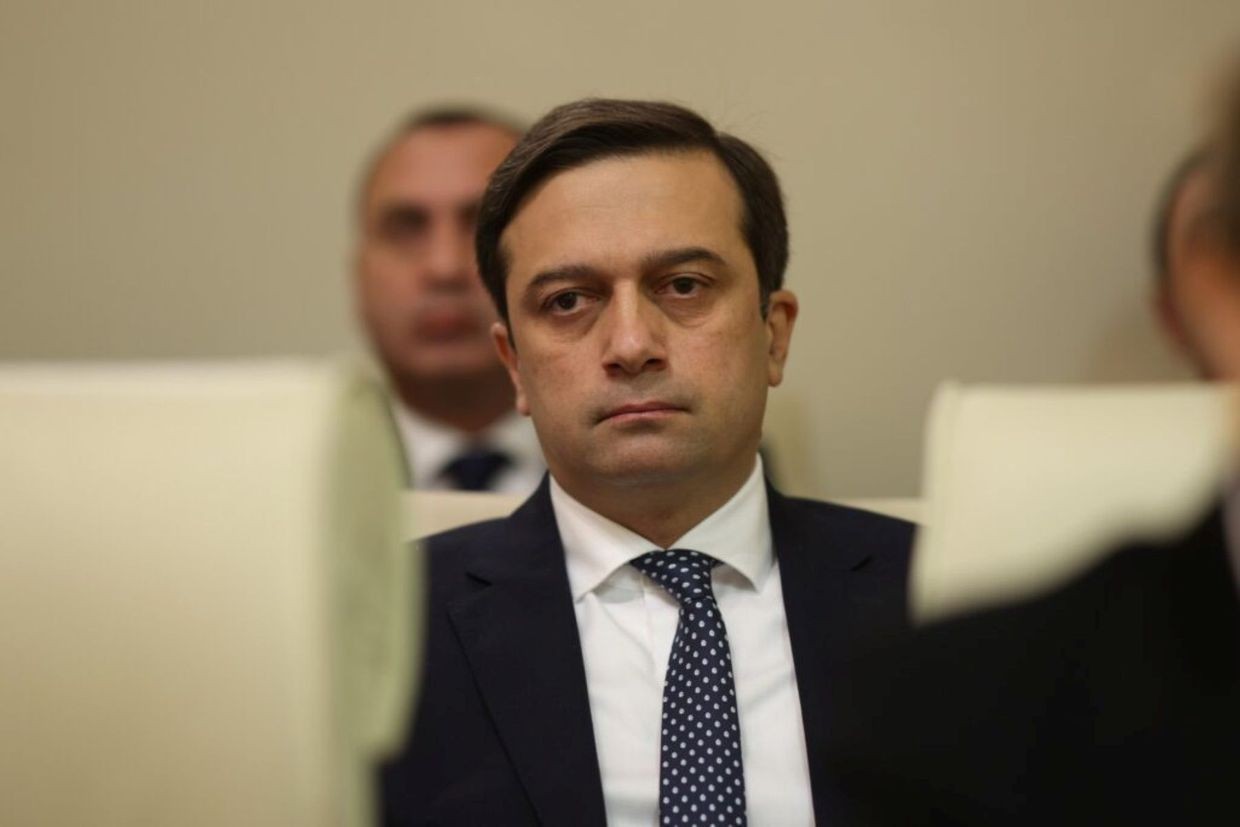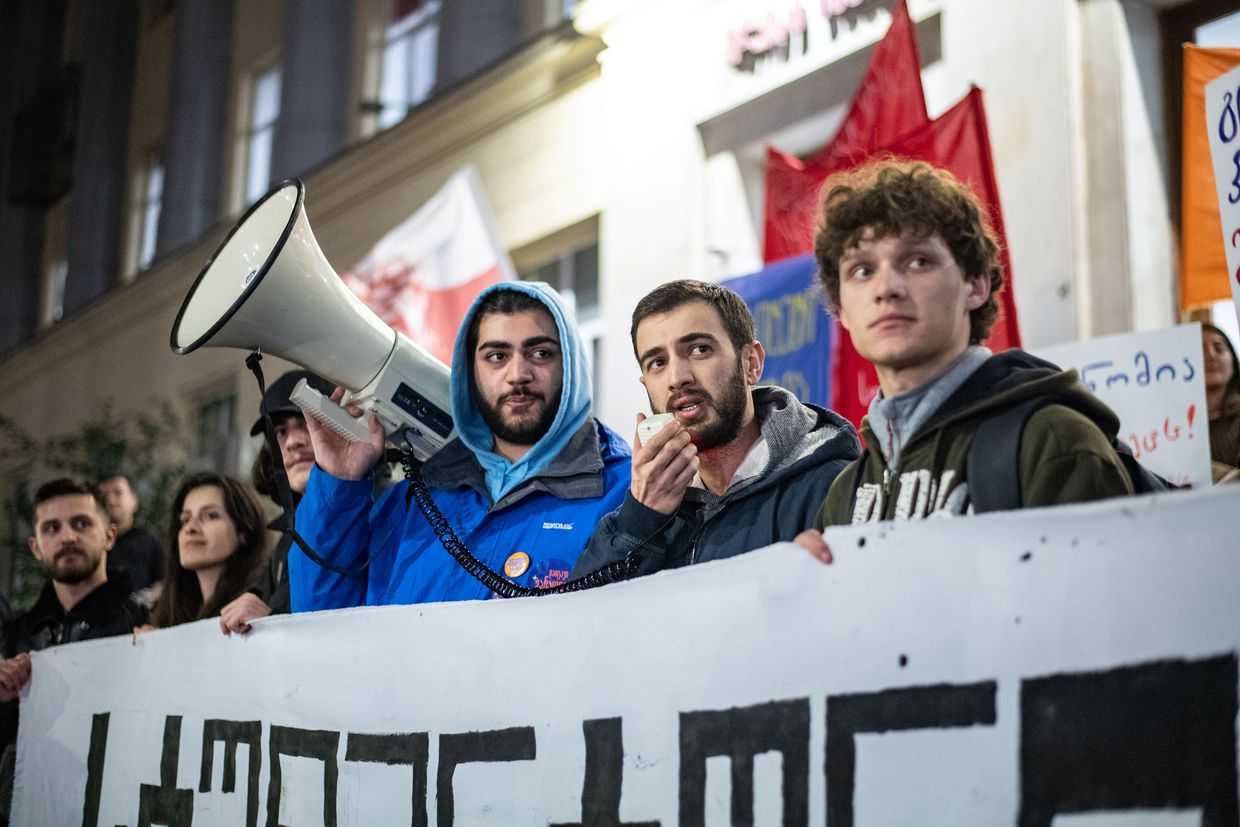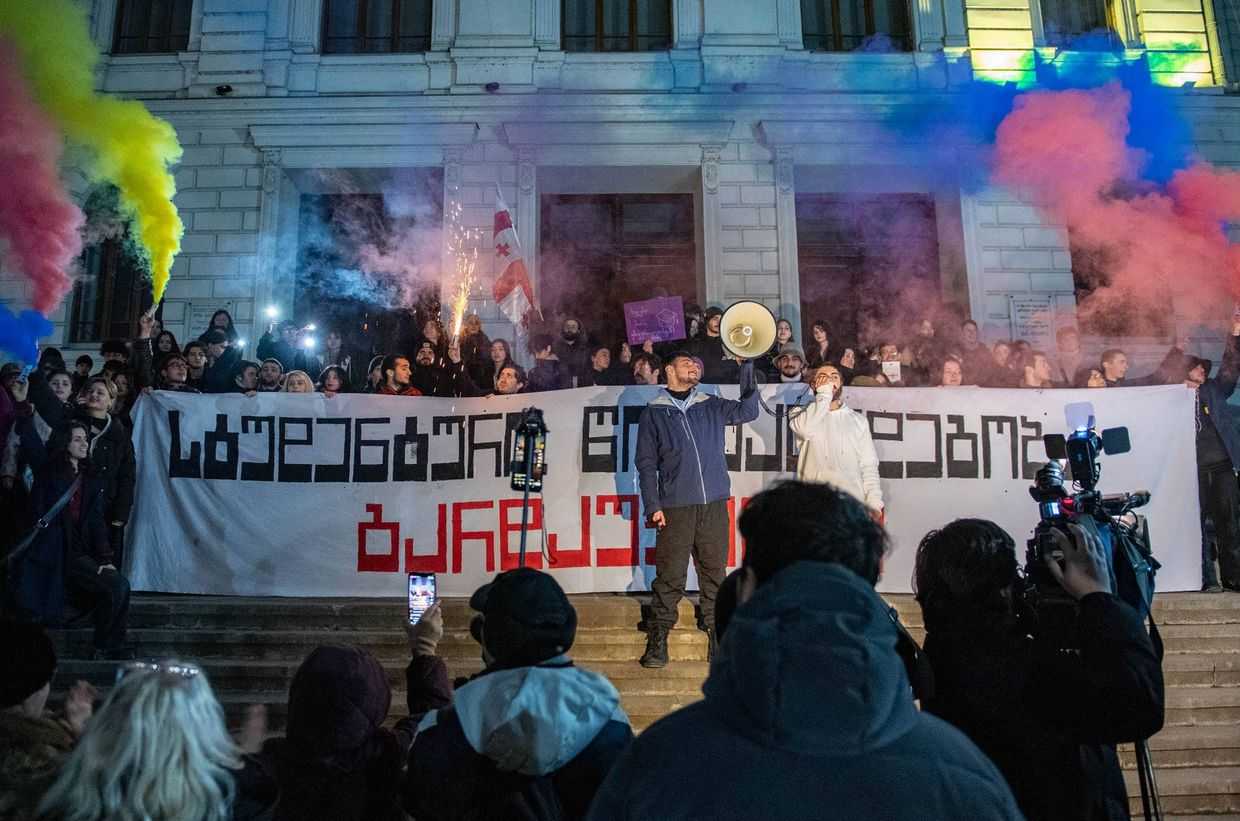
Georgia’s Public Defender, Levan Ioseliani, has spoken in favour of the ₾5,000 ($1,800) fines imposed on protesters for blocking the road, saying that blocking streets is ‘legitimate only when a sufficient number of people are present at the protest’.
In an interview with PalitraNews on Friday, Ioseliani said that ‘it is important for protest participants to clearly understand that a protest and street blocking are legitimate only when a sufficient number of people are present at the protest’.
While he admitted that the ₾5,000 fine was high and ‘inappropriate for the social environment in which we have to live’, it still served as a ‘deterrent’.
‘When such a high fine is imposed, of course, it is a deterrent, including for such rallies, because when such fines are imposed, people may refrain’, he said.
‘I observe the ongoing rallies now, it is important that the participants of the rally clearly take into account the fact that the rally and blocking the street are legitimate only when the appropriate number of people are present at the rally’.
‘You do not have the legitimacy of blocking the street with 10–20 or even 50 people. They can express their opinion somewhere, but this is not a sufficient number. In the case when it is blocked due to the large number of people, then the prerequisite for the existence of that fine will not exist either’, he claimed.
Activist Giorgi Tumasyan posted on Facebook that ‘the regime’s public defender protects the regime’.
‘If you were following our court cases, Levan, you or your representatives would know that we are being fined for being on the crowded Rustaveli Avenue’, he posted.
Following October’s parliamentary elections, which, according to official results, gave Georgian Dream a large majority, with 54% of the vote, a political crisis between the ruling Georgian Dream party and the opposition emerged in Georgia.
This crisis broadened after the government’s EU U-turn, after which Georgians across the country began daily protests, which are still going after more than 150 days. Human rights activists in Georgia have suggested that more than 400 demonstrators may have been detained during November and December alone — a large number of whom claim that they were subjected to physical or psychological abuse by law enforcement officers.
Hundreds of people have been fined on various charges, including petty hooliganism, disobeying police, and recently more actively for blocking roads during the protests.
OC Media’s director and journalist, Mariam Nikuradze, was fined four times for blocking the road while covering the protests, with her fines reaching reaching a total of ₾20,000 ($7,300) in late April.

The office of Public Defender is designed to be an independent institution to monitor and advise on breaches of human rights in the country.
Ioseliani was widely criticised by government critics when there were clashes between the law enforcement officers and demonstrators during protests. Critics have demanded that he and his office be more actively involved in protecting the rights of demonstrators.
Before the pro–EU protests started, around 40 staff members from the Public Defender’s Office signed a letter openly criticising their superior for attending the launch of the new parliament, which is viewed by many as being unconstitutional.
Ioseliani assumed his post at the height of mass protests against Georgian Dream’s first attempt at adopting the foreign agent law in March 2023.
Before his parliamentary opposition group, Citizens, nominated him for the post, Georgian Dream rejected several other candidates supported by civil society groups.
Since then, Ioseliani has frequently faced criticism from opposition groups, civil activists, his predecessor Nino Lomjaria, and various government critics for being silent, late to respond, or overly lenient in addressing human rights violations by the authorities — an accusation Ioseliani’s office has repeatedly disputed.











